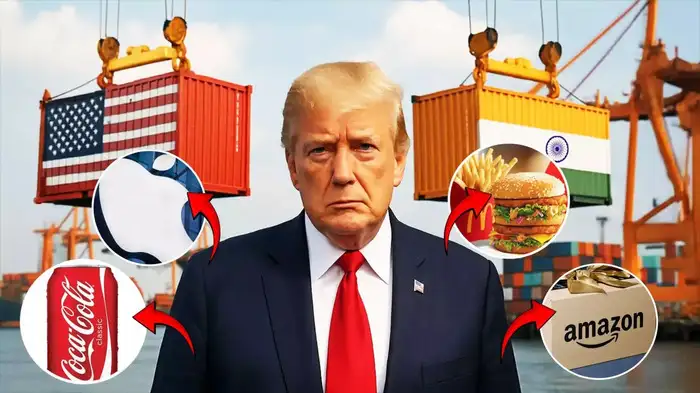Tensions between India and the United States have flared after former U.S. President Donald Trump imposed a 50% tariff on Indian goods, sparking a wave of outrage among Indian consumers and business leaders. In response, a growing movement to boycott American brands is gaining momentum across the country.
Companies like McDonald’s, Coca-Cola, Amazon, Apple, and other U.S. giants now face the prospect of consumer resistance in one of their most crucial international markets.
Anger Mounts as India Responds to Steep Tariffs
According to a report by The Times of India, Indian Prime Minister Narendra Modi’s supporters, along with several prominent entrepreneurs, have expressed sharp discontent over the steep tariff hike. Many have called for a nationwide boycott of American goods, urging consumers to prioritize locally-made products.
Given India’s significance as a major market for U.S. companies, such a boycott—if sustained—could lead to substantial financial setbacks for American multinationals.
U.S. Brands Have Deep Roots in India
The reach of U.S.-based brands in India is vast. Meta’s WhatsApp boasts its largest user base in the country. Domino’s Pizza has more outlets in India than anywhere else outside the U.S. Meanwhile, Pepsi and Coca-Cola beverages are sold on nearly every street corner, and Apple Stores and Starbucks cafes continue to attract large footfalls in urban centers.
Trump had initially imposed a 25% tariff on Indian imports, which was later doubled to 50%, further straining bilateral trade ties. The move has not only caused diplomatic discomfort but has also triggered a consumer-led retaliation on social media, with many users promoting the hashtag-driven calls to support Indian products.
Business Leaders Rally Behind ‘Make in India’
Several Indian entrepreneurs have publicly voiced their support for the movement. Manish Chowdhary, Co-founder of WOW Skin Science, posted a video on LinkedIn urging Indians to support domestic farmers and startups.
“We’ve stood in lines for products flown in from thousands of miles away and proudly paid for brands that don’t belong to us, while our own creators struggle to be seen in their own country,” he said. Chowdhary called for greater recognition of Made in India products globally, citing South Korea as a successful example where local food and beauty products have gained international fame.
Calls for Indian Alternatives to U.S. Tech Platforms
Rahm Shastry, CEO of DriveU, echoed similar sentiments, stating that India should invest in building indigenous alternatives to global tech platforms like Twitter (now X), Google, YouTube, WhatsApp, and Facebook. Drawing comparisons with China, Shastry emphasized the need for self-reliant digital infrastructure that can compete globally.
India’s Retail & Tech Sector at a Crossroads
While some Indian retail brands have started to compete with international chains like Starbucks, breaking into global markets remains a challenge. However, India’s technology service companies are already leading on the world stage. Firms like TCS and Infosys are delivering software and IT solutions to clients across continents, showcasing India’s growing expertise in the digital economy.
Conclusion
As nationalist sentiment rises in India in response to protectionist U.S. policies, American companies may need to brace for consumer backlash in a market that has long been a key growth driver. While it’s still too early to quantify the economic impact, the emerging boycott movement is a clear signal of changing tides in global consumer behavior—and a renewed push for economic self-reliance in India.


